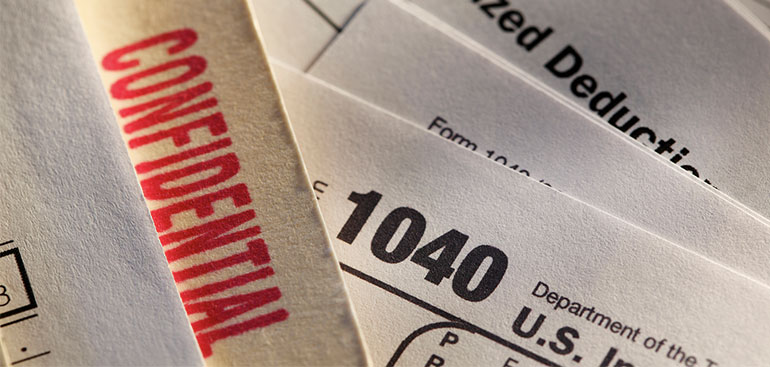Kirk Low. Tennessee CPA Journal. January 2002.
The Tennessee Department of Revenue (TDOR) has removed the penalty from franchise and excise tax returns that receive an assessment because of estimated payments that did not meet the one-time requirements for the tax years beginning on or after July 1, 1999, and before July 1, 2000, that the amount of each estimated payment be the greater of 25 percent of the combined franchise and excise tax liability for the preceding tax year, annualized if the preceding tax year was for less than twelve months or 25 percent of 50 percent of the franchise and excise tax liability for the current tax year. The interest due will continue to be assessed. This change should allow practitioners to advise clients to pay the interest due and request abatement of the penalty by telephone.
At the TSCPA State Tax Committee Meeting on Nov. 16th 2001, Commissioner Ruth Joluson said the Tennessee Department of Revenue’s budget requests for the upcoming legislative session will be similar to last year’s requests. Key items in the improvements requested include the following.
- Adding 16 part-time clerks in processing to cover the peak periods
- Overtime for processing personnel
- Six additional positions to set up an electronic commerce system
- A computer operations manager
- An image processing system and support positions to isolate the mailroom from the rest of the TDO R
- Additional Tax Enforcement Division positions for the “Predictive Dialer” program
- Attorney positions to increase the number of hearing officers and provide staffing to speed responses to requests for revenue rulings
- Additional positions in Special Investigations
- Increases in the Audit Division including setting up technical positions and increasing travel allowances
- Equity funds to upgrade positions in the Audit Division.
During the last year, 45,000 new tax payers were added and personnel had to be pulled from other divisions to meet the processing deadines.
Commissioner Johnson noted the TDOR was losing middle management staff and several of the improvements are targeted at retaining experienced employees.
The commissioner also reported that since July 1, 1999, 132 lawsuits have been filed against the Department of Revenue. Of those, 53 (40 percent) went through the informal conference process. The 53 informal conference decisions that went to the courts were 10.5 percent of the 505 conference decisions since July 1, 1999. With approximately half of the informal conferences resulting in no change in favor of the taxpayer the low number of court decisions shows that many cases were settled. Commissioner Johnson also reported the Department of Revenue was having difficulty getting cases to the Tennessee Supreme Court level.
Responding to the committee’s question, “If an individual income tax is adopted, what state’s laws and rules will be used as a pattern?” Deputy Commissioner Mike Cole said that no particular state had been identified. The TDOR has looked at Connecticut, North Carolina, and Ohio as examples but rules have not been developed.
Additionally, the best practices identified by the Federation of Tax Administrators will be used in developing the, rules if the tax is adopted. Cole stated that the TDOR expected two million additional returns if an individual income tax was adopted, plus withholding returns from 150,000 employers and estimated payments from 350,000 self-employed individuals. The TDOR will request 375 to 400 new employees, approximately a 50 percent increase in staffing, to handle the tax, adding to the processing and taxpayer services areas if the legislation is passed. TDOR staff estimated that a lead-time of six months would be needed as a “bare minimum” for implementation of the new tax with the hiring of new staff being critical.
The franchise and excise collections were negative in October 2001 as entities requested refunds of estimated payments in excess of the actual tax due. A comparison of the franchise and excise tax returns from Sept. 15 through Nov. 14 for the last two years is found in Table 1 above. The increase in the number of returns filed was due to the first time filings of the limited liability entities.
A tour of the processing of tax returns saw automation in many areas, but the processing remains a very labor-intensive operation. Processing starts with the sorting of mail. Use of the envelopes supplied by the TDOR or using the complete nine digit zip code directs the return and payment to be opened as part of a batch of similar returns, thereby reducing mistakes. Example 1 on page 30 lists the zip codes that practitioners should use.
The processing of Hall Income Tax returns is one of the more manual operations. Only one percent of the Hall returns are filed on the TDOR’s forms. The TDOR mailed the Hall forms for 2001 in November, but likely will not mail the forms in the future.
Patsy Clark, director of Taxpayer Services, stated the account number was not necessary for the Hall returns. Because the Hall returns must be completely keyed to get the data into the system, the account number is not required.
Additionally, the TDOR demonstrated an “e-filing” Internet application for the Hall returns . The application is intended to allow taxpayers to enter and submit the Hall return over the Internet. A coupon would be printed to accompany the remittance. The State Tax Committee formed an ad hoc committee to meet with the TDOR and state Web site developer to assist in the development of this application. The TDOR is looking at “e-filing” applications for the professional fees, franchise and excise tax extensions, and franchise and excise tax estimated payments. Loren Chumley, director of the Audit Division, would not discuss the audit selection process, but did say that all assignments where made out of Nashville. She said that recent audits found problems in the following areas:
- Making exempt purchases without an industrial machinery exemption
- Differences between Schedule C on the franchise and excise tax return and sales tax filings
- Confusion on bundled transactions
- Software.
The TDOR has collaborated with Tennessee’s print fs on an industry guide and is currently working on a guide for the security systems industry.
The “predictive dialer” has been successful. The TDOR has decided to keep this program that replaced the second notice with a telephone call from Taxpayer Services. Between the start of thjs program on Oct. 26 and Nov. 16, a total of 19,980 cases had been closed.
The 14 employees are concentrating on low balance, new balance and out of state issues where there has been no response to the first notice. It is expected that 20,000 calls per month will be made in the future. Telephone calls to Taxpayer Assistance have decreased because the second notices are not being mailed at the same rate as before this program was initiated.
During the year ending Dec. 31, 2000, the Department of Revenue processed the returns and payments in Table 2 on page 30. In a discussion of the notices present ed by the committee as problems, Patsy Clark stated the following:
- The penalty on the Hall Income tax and the franchise and excise tax is calculated at 5 percent per 30-day period
- All “heads down “data entry is now being verified to reduce the number of notices
- Additional edits have been added to the system to reduce the number of notices
- Processing equipment has been upgraded
- The TDOR will review the Inheritance returns lack of a provision for a refund
- Envelopes are retained for all franchise and excise tax returns and late filings of sales tax returns
- The “mathematical discrepancy… ” description on the notices will be removed as of Dec. 1
- The change in account numbers of franchise and excise tax accounts that caused overpayments from the prior year not to be applied to the next year in all cases was a one-time occurrence and should not happen again.
Responding to questions about the limited liability entities that are exempt from the franchise and excise taxes because of family ownership and passive investments, Arnold Clapp, director of Legal Services for the TDOR, said that a son-in-law would only qualify as a family member if the daughter also had an ownership interest in the entity. The first year that a limited liability entity is exempt from the franchise and excise tax, a letter detailing the percent age of income from passive investments and the ownership should be sent to the following address:
Tax payer Services
Tennessee Department of Revenue Andrew Jackson State Office Building 500 Deaderick Street
Nashville, Tennessee 37243
Beth Chapman of the Unclaimed Property Division of the Treasury Department explained the amnesty program that eliminates the penalty for filers that come into compliance by May 1, 2002. Chapman said 29 percent of the unclaimed property collected was returned to Tennesseans and $17 million was reverted to the General Fund.
Linda Bell of the Department of Labor and Workforce Development said that 99 percent of the employment security audits were random to meet the requirement that two percent of the accounts be audited each year. If an account has “an abundance of wage protests,” that employer may also be audited. The auditors are looking for excess wages not reported, misclassified workers and sole proprietorships reporting relatives.
Bell also said there was a chance that unemployment rates would increase next year. An Internet reporting application for employers with 25 or less employees is scheduled to be in the pilot phase during the first quarter of 2002. In a discussion of industry standards, Bell said that if the industry standard did not fit the law, the industry standard was not used.
Audits are normally completed within 90 days, but could take up to a year because the auditors have several other responsibilities. If there is a difference that cannot be resolved with the auditor, an informal conference may be requested before going to the more structured appeal procedures. An exit conference should be held by the auditor at the end of each audit.
Kelsie Jones, the Executive Secretary for the State Board of Equalization, said the lawsuits by several counties contesting the board’s 15 percent reduction in the assessments of utilities, railroads, and airlines are continuing to the Tennessee Supreme Court. The audits of tangible personal property continue and all counties now have an approved plan.
In a discussion of the legislation from the last session and issues he sees being addressed in the near future, Jones said the following:
- He hopes the defining of when materials leave inventory and become work-in-process can be clarified by a rule
- Consistency in the appeals process is needed ·
- A manual on tangible personal property is in the early stages
- The assessor in each county has the final call on an assessment
- Legislation passed in the last session made the tangible personal property in vacation homes tax able if three or more are owned in the same country
- There may be an effort in the next session to offset the under valuations of some groups of the tangible personal property
Jones also said that a rule might be pro posed to make the assessment of software as tangible personal property conform to the TDOR’s definition of software. Currently, only operating soft ware (for example, DOS and Windows for PCs) is taxed and application software (for example bookkeeping software) is exempt.
At the close of the meeting, the committee reviewed the progress made since the last meeting noting the delay of the implementation of the “predictive dialer” pilot so that practitioners could be informed of the change. Also, the end of the “mathematical discrepancy” on the notices will remove the inference that practitioners have made a computation error. The request for an ad hoc group to aid in the “e-filling” effort for the Hall Income tax returns is an additional step to better communication between the TDOR and CPAs.


